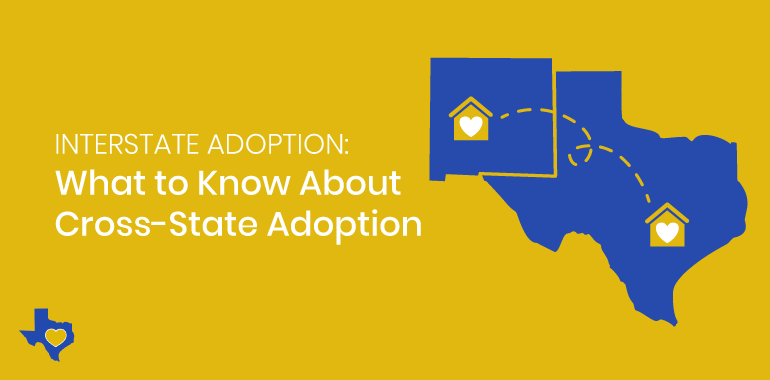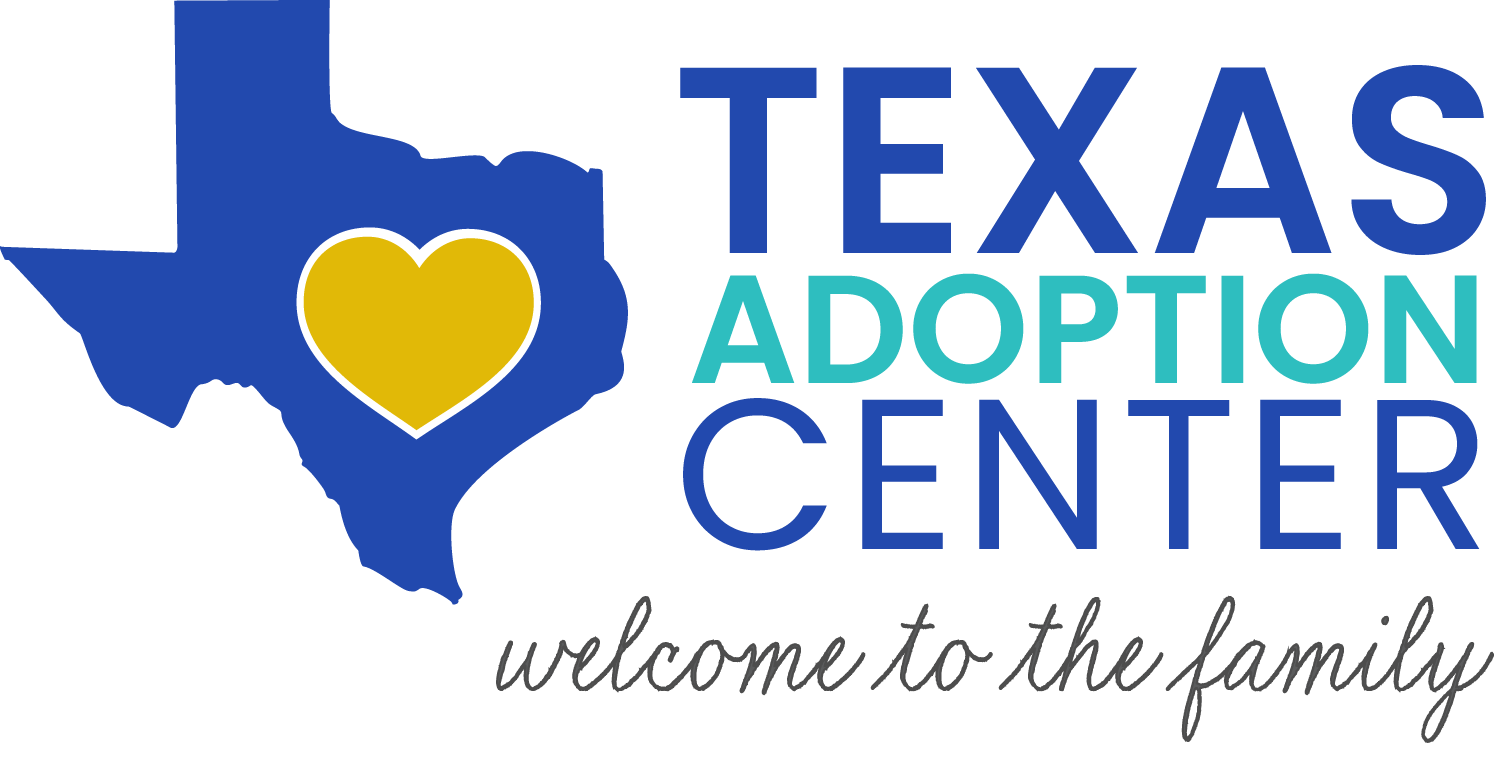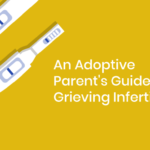
Placing a baby for adoption in Texas isn’t easy. Not only is it a deeply personal decision that no one can make for you, but it also can be a lot of paperwork. But what if it’s an interstate adoption?
To put it simply, adopting across state lines is a lot more complicated than adopting within your home state. That’s not to say that it is impossible, but it can come with extra hoops to jump through.
The good news? Texas Adoption Center is here to help. We’ve put together this quick and easy guide to interstate adoption for birth mothers to help you navigate your next steps. Read on to learn more, or reach out to us to get personalized guidance and resources.
What Is Interstate Adoption?
Interstate adoption may involve a lot of complicated legal considerations, but it’s a pretty simple concept. It is simply an adoption in which the birth mother lives in one state and the adoptive parents live in another.
So, if you’re in Texas and trying to work out an adoption to parents in Arkansas, you’re in the midst of an interstate adoption.
Reasons for Adopting Across State Lines
As you’re reading about adopting out of state, you may start wondering why anyone would opt for interstate adoption in the first place. It’s a fair question, but it turns out that there are plenty of reasons to consider adopting across state lines:
- The ultimate goal is the well-being of the child, not placing the child in a particular location.
- Sometimes, parents from out of state inquire across state lines because they see a notice online about a child in the foster system being placed for adoption.
- When an adoption involves relatives who are qualified to adopt the child, their location will matter very little. This is typically called a Kinship Adoption and occurs within the foster system.
- Some children in the foster system wait years to be adopted, and a little extra paperwork is no reason to delay placing the child into a new loving home.
- The Adoption and Safe Families Act, a federal law, requires state adoption centers to consider placements that are out of state.
Adopting Out of State Means Following Two Sets of Laws
One of the most crucial considerations for any birth mother considering an interstate adoption is the law. In this case, you are going to have to contend with two sets of laws: Texas adoption laws and the adoption laws in the state where the adoptive parents live.
That’s thanks to the Interstate Compact on the Placement of Children (ICPC), which is an agreement between all U.S. states and territories to consider each other’s laws in the case of adoption across state or territory borders.
That may sound daunting, but the good news is that most state adoption laws are pretty similar. There may be some key differences, but you can find a handy list of all applicable adoption laws by state online. And if you start to get confused, you can always reach out to Texas Adoption Center for help.
The Interstate Adoption Process: Step by Step
Adopting out of state is a complex process that is governed by both federal law and the laws of not one but two states. The whole thing can feel a little hectic if you just dive right in, but if you take some time to zoom out and get an overview of the basic steps involved, you’ll be able to make much more sense of the whole adoption process.
Here’s that process in a nutshell:
- The adoption center representing the child compiles a document that includes information about the child, birth parents, and adoptive family, fully summarizing the adoption plan. The document contains the adoptive family’s home study from their state of residence and supporting paperwork required by both states. This packet of information is submitted to the ICPC department in the child’s state of birth.
- A federal employee called an ICPC compact administrator in the child’s current state reviews the document and sends it to an ICPC compact administrator in the receiving state.
- The compact administrator in the receiving state reviews the document and ensures no further paperwork is needed. If any further information is needed, the receiving state will notify the family’s adoption center in their state of residence, the adoption center managing placement, and the ICPC department in the sending state.
- Once all required paperwork is reviewed and if everything checks out, the child is approved for placement by both ICPC departments and the adoptive family is able to return home.
Need Help With an Interstate Adoption? Contact Texas Adoption Center
If you’re considering interstate adoption, you need to know that you are about to face a tricky legal situation — one in which mistakes can slow down or even stop the adoption process, further delaying your child’s transition to their new home. That’s why it is so important to reach out for help if you need it.
Texas Adoption Center is in the business of providing exactly that kind of help. We are always available to provide guidance and resources to birth mothers who are considering adoption. If you need us, don’t hesitate to reach out. Contact us through our website, call us at 512-893-7943, text 361-461-3742, or shoot an email to hello@texasadoptioncenter.org.






